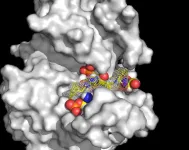(Press-News.org) Tobacco use remains a significant global health challenge, despite extensive control measures at both national and international levels. Smoking continues to be a leading cause of premature death, with exposure to tobacco—whether through active smoking or secondhand smoke—significantly increasing the risk of non-communicable diseases (NCDs) such as cardiovascular disease, cancer, chronic respiratory conditions, and diabetes. These NCDs account for nearly 75% of annual global deaths.
A wide range of strategies has been developed to combat smoking and promote public health, including taxation, mass media campaigns, health warnings on packaging, marketing restrictions, smoke-free legislation, youth access policies, flavor bans, and free or discounted nicotine replacement therapies (NRT). The research team conducted a comprehensive review of real-world, population-level tobacco control strategies to assess their effects on smoking behavior.
Through a systematic review and meta-analysis of 476 studies, the team led by Hitotsubashi University found that tax increases, smoke-free legislation, and anti-smoking campaigns were particularly effective in reducing smoking prevalence and cigarette consumption, as well as increasing quit rates, quit attempts, and quit intentions. Health warnings on cigarette packaging, free or discounted NRT, and flavor bans were also linked to higher smoking cessation rates. Additionally, flavor bans were shown to reduce e-cigarette use.
“Our study provides a detailed overview of the impact of various population-level interventions to curb smoking. Based on the available evidence, anti-tobacco campaigns, smoke-free legislation, health warnings, and tax increases are the most effective strategies for reducing smoking,” said Dr. Shamima Akter, lead author from Hitotsubashi University.
“The findings offer policymakers a foundation for designing and prioritizing tobacco control measures at the population level,” added Professor Ryota Nakamura from Hitotsubashi University.
The study was published today in Nature Human Behaviour and is available via open access.
END
Tax, smoke-free legislation, and anti-smoking campaigns linked to smoking reduction
2024-10-07
ELSE PRESS RELEASES FROM THIS DATE:
Targeting failure with new polymer technology to enhance sustainability
2024-10-07
Targeting failure with new polymer technology to enhance sustainability
Sustainability is a complex problem with many different players and influenced by policies, society, and technical perspective.
We are reminded every day in the media of the unnecessary amount of waste that we are generating with pervasive pictures of plastic garbage patches floating in the oceans or stranded on our beaches.
Scientists within ASU’s School of Molecular Sciences (SMS) and the Biodesign Institute’s Center ...
Stigma has a profound impact on health outcomes must be addressed
2024-10-07
A new article published in Nature Reviews Disease Primers underscores the profound role that stigma can play in health care -- and how addressing stigma-related barriers can significantly improve health outcomes for individuals and communities around the world.
“Stigma has harmful effects on health, equity and justice,” says lead author Carmen Logie, a professor at the University of Toronto’s Factor-Inwentash Faculty of Social Work (FIFSW). "And while we need more rigorous evaluation of interventions ...
Has the affordable care act’s dependent coverage expansion benefited young adults diagnosed with cancer?
2024-10-07
The federal Patient Protection and Affordable Care Act (ACA) passed in 2010 includes a Dependent Coverage Expansion (DCE) provision that permits dependents to remain on their parents’ health insurance plans from age 19 to 25 years, the age group that has historically had the highest uninsured rate in the United States. A recent analysis reveals that during the ACA’s first decade, survival rates of DCE-eligible young adults with cancer have improved. The findings are published by Wiley online in CANCER, a peer-reviewed journal of the American Cancer Society.
To examine whether young adults with cancer diagnoses have ...
A new study reveals a key mechanism driving atherosclerosis in Hutchinson-Gilford Progeria Syndrome
2024-10-07
A team of researchers from the Centro Nacional de Investigaciones Cardiovasculares Carlos III (CNIC), the Centro de Investigaciones Biológicas Margarita Salas (CIB-CSIC), and the Instituto de Ciencias de Materiales de Madrid (ICMM-CSIC) has made a significant breakthrough in understanding the underlying causes of cardiovascular disease in patients with Hutchinson-Gilford progeria syndrome (HGPS), an ultra-rare genetic disorder that accelerates the aging process. The most serious consequence of HGPS is the early onset of cardiovascular disease, leading to premature death at an average age of 14.5 years.
The study was led by Dr. Vicente Andrés, ...
HPV vaccination switch to 1-dose gender-neutral approach
2024-10-07
Canadian vaccination programs could switch to a 1-dose gender-neutral human papillomavirus (HPV) vaccination approach and eliminate cervical cancer, suggests new modelling in CMAJ (Canadian Medical Association Journal) https://www.cmaj.ca/lookup/doi/10.1503/cmaj.240787.
“Our results have important policy implications in Canada, and in other similar high-income countries evaluating whether to switch to 1-dose HPV vaccination,” writes Dr. Marc Brisson, a full professor at Laval University, Québec, and director of the Mathematical Modeling and Health Economics of Infectious Diseases Lab at the ...
Scurvy: Not just an 18th-century sailors’ disease
2024-10-07
Scurvy, or vitamin C deficiency, is not just an 18th-century seafarers’ disease, as a case study of a 65-year-old woman with mobility issues and social isolation shows. In an article published in CMAJ (Canadian Medical Association Journal) https://www.cmaj.ca/lookup/doi/10.1503/cmaj.240769, clinicians describe how scurvy should be considered in patients with abnormal bleeding and nonspecific symptoms.
The patient visited the emergency department at a downtown Toronto hospital for leg pain and weakness, skin lesions, and discoloration. She also had several chronic health ...
Scientists discover a secret to regulating our body clock, offering new approach to end jet lag
2024-10-07
Singapore, 7 October 2024—Scientists from Duke-NUS Medical School and the University of California, Santa Cruz, have discovered the secret to regulating our internal clock. They identified that this regulator sits right at the tail end of Casein Kinase 1 delta (CK1δ), a protein which acts as a pace setter for our internal biological clock or the natural 24-hour cycles that control sleep-wake patterns and other daily functions, known as circadian rhythm.
Published in the journal PNAS, their findings could ...
Impact of pollutants on pollinators, and how neural circuits adapt to temperature changes
2024-10-04
The Kavli Foundation and the U.S. National Science Foundation are collaborating to accelerate research in the emerging field of neurobiology in changing ecosystems, stemming from the foundation’s efforts in this area first announced in 2023. A joint Kavli-NSF grantmaking program was launched in December of 2023.
Building on early success of this program, Kavli and NSF announce its continuation with a second call for proposals, open through February 10, 2025, for projects tackling hard problems in this understudied field.
Research ...
Researchers seek to improve advanced pain management using AI for drug discovery
2024-10-04
An estimated one in five Americans live with chronic pain and current treatment options leave much to be desired. Feixiong Cheng, PhD, Director of Cleveland Clinic’s Genome Center, and IBM are using artificial intelligence (AI) for drug discovery in advanced pain management. The team’s deep-learning framework identified multiple gut microbiome-derived metabolites and FDA-approved drugs that can be repurposed to select non-addictive, non-opioid options to treat chronic pain.
The findings, published in Cell Press, represent one of many ways the organizations' Discovery Accelerator partnership is helping ...
‘Neutron Nexus’ brings universities, ORNL together to advance science
2024-10-04
Oak Ridge National Laboratory has launched its Neutron Nexus pilot program with Florida Agricultural & Mechanical University, or FAMU, and Florida State University, or FSU, through the FAMU-FSU College of Engineering. The first program of its kind nationwide, it’s aimed at broadening and diversifying the scientific user community with outreach to universities and colleges to increase collaboration and, ultimately, scientific advancement.
Although a recently planned two-day “ORNL Days” event in Florida was cut ...




